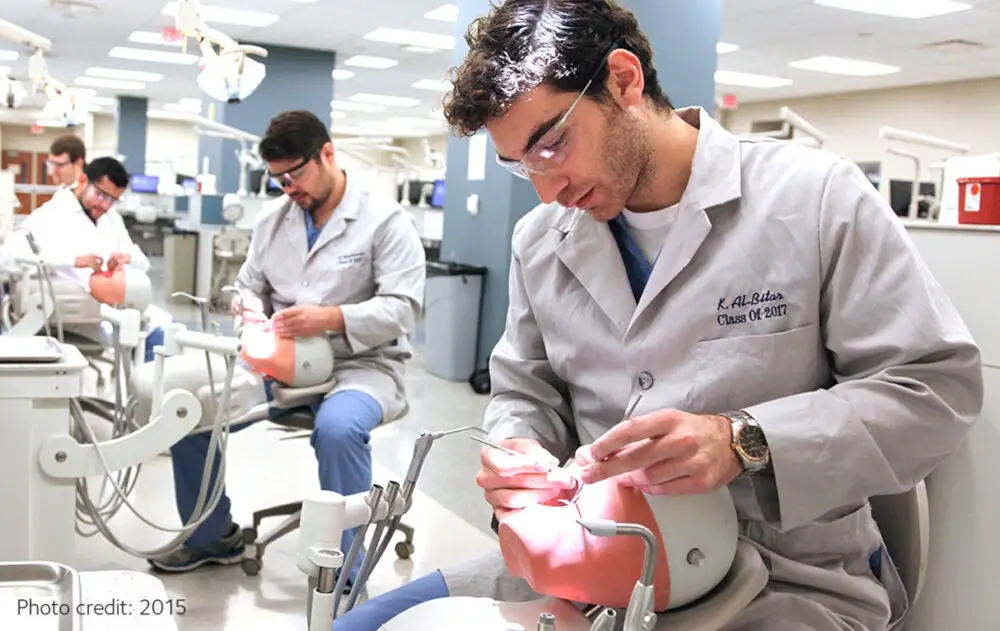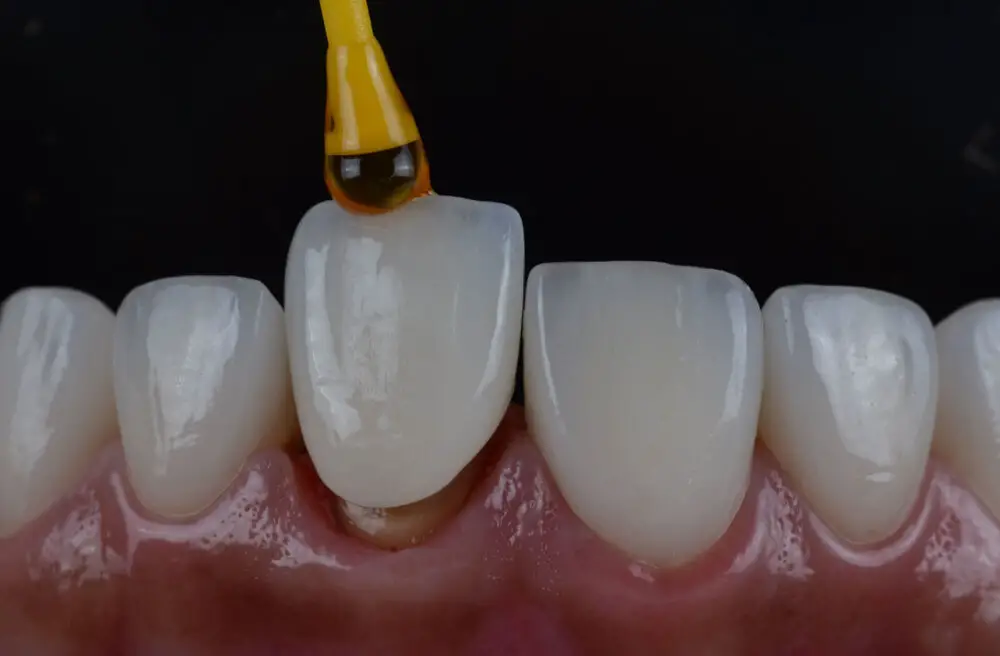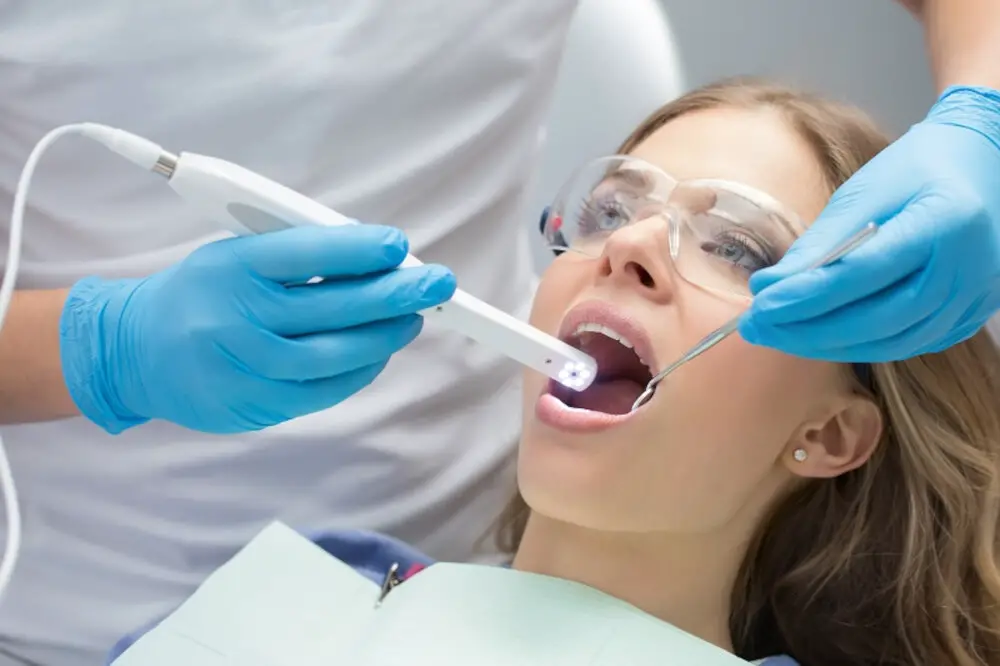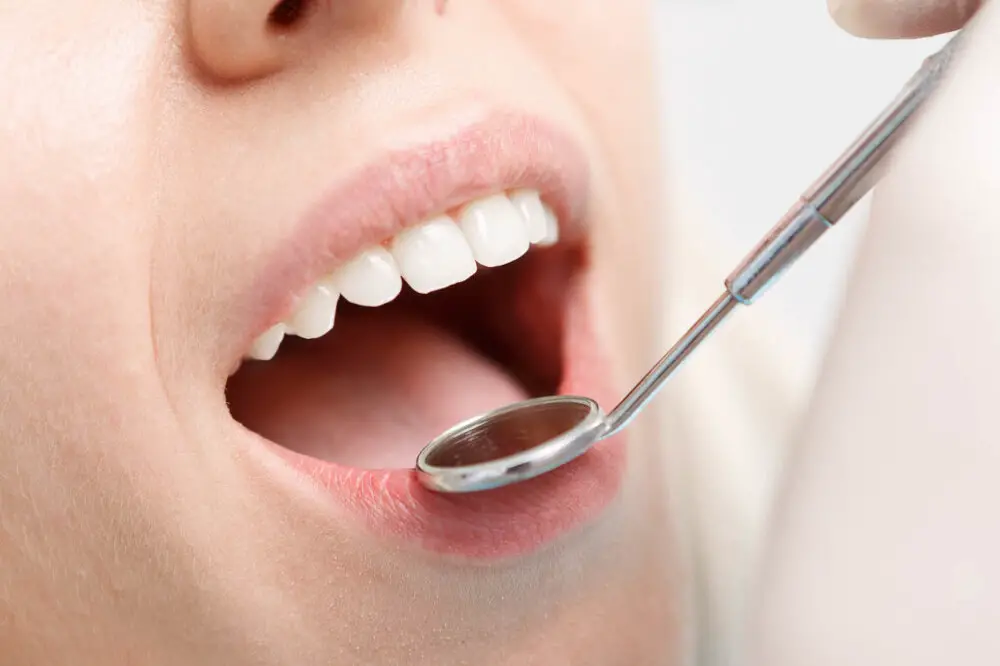When Do Wisdom Teeth Holes Heal? A Comprehensive Guide to Recovery

Wisdom teeth extraction is a common dental procedure that many people undergo during their young adulthood. While it is a routine surgery, it is not without its risks and complications. One of the most common concerns after the procedure is the healing process. Patients often wonder how long it will take for the holes left behind by the wisdom teeth to heal and what they can do to promote a speedy recovery. The healing process after wisdom teeth extraction can vary from person to person, depending on factors such as age, overall health, and the complexity of the procedure. However, with proper care and attention, most people can expect their wisdom teeth holes to heal within a few weeks. In this comprehensive guide, we will explore everything you need to know about the healing process, including tips for promoting a speedy recovery, common complications to watch out for, and when to seek medical attention.
Wisdom teeth, also known as third molars, are the last set of teeth to emerge in the back of the mouth, typically during the late teenage years or early twenties. In some people, there isn’t enough room in the mouth for these teeth to come in properly, causing pain, infection, and other dental problems. In such cases, the dentist or oral surgeon may recommend wisdom teeth removal. The procedure involves making incisions in the gum tissue and removing the teeth, sometimes in pieces. Local anesthesia or general anesthesia may be used to keep the patient comfortable during the procedure. Afterward, the patient may experience swelling, pain, and bleeding, but with proper care, the holes from wisdom teeth removal can heal completely within a few weeks.
Proper healing is crucial for any surgical procedure, including wisdom teeth extraction. Failure to achieve proper healing can result in complications such as infection, prolonged pain, and even damage to the jawbone. It is important to follow post-operative instructions carefully, including taking prescribed medications, avoiding certain foods, and keeping the extraction site clean. Additionally, it is important to give the body time to heal and avoid strenuous physical activity that could disrupt the healing process. With proper care and attention, wisdom teeth holes can heal within a few weeks, leading to a smooth and successful recovery.
What to Expect After Wisdom Teeth Removal

Wisdom teeth removal is a common dental procedure that requires appropriate aftercare to ensure proper healing. After the surgery, patients can expect some discomfort and swelling for a few days. However, this can be managed by using painkillers and ice packs to reduce inflammation. It is also essential to follow the dentist’s instructions on how to care for the wound, such as avoiding smoking, alcohol, and solid foods for the first few days. Patients should also rinse their mouth with saltwater to prevent infection and promote healing. In addition to pain and swelling, patients may experience bleeding for the first 24 hours after surgery. This is normal and can be managed by biting down on gauze placed at the extraction site. It is also important to rest and avoid strenuous physical activity for a few days to allow the body to heal. Patients can gradually resume their normal activities as the swelling and discomfort subside. Typically, the healing process takes around 7-10 days, and patients should attend follow-up appointments with their dentist to ensure proper healing and address any concerns. By following the dentist’s instructions and taking proper care of the wound, patients can expect a smooth recovery after wisdom teeth removal.
Pain and swelling are common symptoms experienced by individuals who undergo wisdom teeth extraction. The pain can range from mild discomfort to throbbing, shooting pain that can be unbearable. Swelling is also a typical side effect, which may cause facial distortion in some cases. These symptoms are a result of the body’s natural response to trauma, inflammation, and infection. Pain can be managed with over-the-counter analgesics or prescription medication, while swelling can be reduced by applying ice packs to the affected area. It is crucial to follow the dentist’s post-operative instructions to minimize these symptoms and promote proper healing.
Bleeding is a common occurrence after wisdom teeth extraction, and it is essential to manage it properly to avoid complications. Initially, bleeding is expected, and gauze pads are provided to be placed on the extraction site to help control it. It is recommended to bite down firmly on the gauze for about 30-45 minutes after the extraction. After that, it is normal to have some oozing for the next 24-48 hours, and it is crucial to avoid spitting or rinsing vigorously during this time to prevent dislodging the blood clot. If bleeding persists or becomes heavy, contact your dentist immediately as it may indicate a complication such as a dry socket.
One of the most common difficulties experienced during wisdom teeth recovery is eating and drinking. The holes left from the extraction can make it painful to chew and swallow, leading to a limited diet and dehydration. It is important to stick to soft foods such as soups, mashed potatoes, and smoothies during the first few days after the procedure. As the holes begin to heal, gradually introduce solid foods back into your diet, starting with softer options like cooked vegetables and eggs. It is also crucial to stay hydrated by drinking plenty of water and avoiding alcoholic and carbonated beverages. With proper care and patience, the discomfort associated with eating and drinking will gradually subside, allowing you to return to your regular diet in no time.
Healing Timeline

The healing timeline for wisdom teeth holes can vary depending on various factors, such as the individual’s age, the complexity of the extraction, the number of teeth removed, and the overall health of the patient. Typically, the first 24-48 hours after the procedure are the most critical, and patients should expect some discomfort, swelling, and bleeding. During this time, it is recommended to rest and avoid any strenuous activities that may cause further trauma to the extraction site. Additionally, patients should use ice packs and prescription pain medication to manage their pain and swelling. After the first 48 hours, patients may start to notice a gradual improvement in their symptoms, and the bleeding should stop entirely within a week. The healing timeline for wisdom teeth holes also includes the formation of a blood clot, which is a critical component of the healing process. The blood clot serves as a protective layer over the extraction site, preventing bacteria and food particles from entering the wound. Patients should avoid smoking, drinking through a straw, and eating hard or crunchy foods during the first few days after the extraction to prevent dislodging the blood clot. On average, it takes about two weeks for the blood clot to become fully formed, and patients can expect their gums to be completely healed within three to four weeks. However, it is essential to note that every patient’s healing process is unique, and some may experience a longer or shorter recovery time. It is crucial to follow the post-operative care instructions provided by the dentist or oral surgeon to ensure a smooth and speedy recovery.
The first 24 hours are crucial for a successful recovery after wisdom teeth extraction. Immediately following the procedure, the patient will experience some bleeding and swelling, which can be managed by applying an ice pack to the affected area for 20 minutes at a time. Pain medication prescribed by the dentist should also be taken as directed to manage any discomfort. During the first day, it is important to avoid any strenuous activity and to eat soft, cool foods that are easy to chew. It is also recommended to avoid smoking and using straws, as the sucking motion can dislodge the clot and delay healing. By following these guidelines, the patient can ensure a smooth and speedy recovery.
The first week following wisdom teeth removal can be the most challenging but also the most crucial in ensuring a smooth recovery. During this time, patients may experience discomfort, swelling, and bleeding, which can be managed with pain medication, ice packs, and proper oral hygiene. It’s important to follow the post-operative instructions provided by the oral surgeon carefully, including avoiding hard foods, smoking, and using a straw. Patients should also take plenty of rest and avoid strenuous activities for the first few days. While the first week of recovery may be tough, it sets the foundation for a successful healing process and a speedy return to daily life.
The second week of wisdom teeth holes recovery is a crucial time as the potential for complications begins to decrease significantly. By this point, the majority of the bleeding and discomfort should have subsided, and the holes should be showing signs of healing. Patients may still experience some residual soreness, but this can be managed with over-the-counter pain medication. It’s important to continue practicing proper oral hygiene during this time, including gently rinsing the mouth with saltwater and avoiding hard or crunchy foods that could irritate the healing holes. While everyone’s recovery timeline may differ slightly, the second week is typically a turning point in the healing process, and patients can start to feel more like themselves again.
The third week is a significant milestone in the recovery process of wisdom teeth holes. By this time, the swelling and pain would have subsided, and the socket would have started to heal. However, it’s important to note that complete healing can take several weeks to months, depending on the individual’s healing capacity. During the third week, patients should continue to follow their aftercare instructions diligently, including regular saltwater rinses and avoiding hard or crunchy foods. If any unusual symptoms, such as persistent bleeding or severe pain, occur during this period, patients should consult their dentist immediately.
Tips for a Faster Recovery

Recovering from wisdom teeth extraction surgery can be uncomfortable, but there are various tips that can help you have a faster and more comfortable recovery. One of the most important things that you can do to promote healing is to take care of your oral hygiene. You should brush your teeth gently with a soft-bristled brush and rinse your mouth with saltwater to prevent infection. It is also important to avoid smoking, drinking alcohol, or using a straw, as these activities can dislodge the blood clot that forms in the socket, leading to a painful condition known as dry socket. Eating soft foods, such as yogurt, pudding, and mashed potatoes, can also help you avoid putting pressure on the extraction site and promote healing. Additionally, applying an ice pack to your cheeks for the first 24 hours can help reduce swelling and discomfort. Another important tip for a faster recovery after wisdom teeth extraction is to rest and avoid strenuous activities. You should take it easy for the first few days after surgery and avoid any activities that can raise your blood pressure, such as exercising, bending over, or lifting heavy objects. Getting enough rest and sleep can also help your body heal faster. It is also important to follow your dentist’s instructions for pain management and take any prescribed medications as directed. If you experience any unusual symptoms, such as severe pain, excessive bleeding, or fever, you should contact your dentist immediately. By following these tips, you can help ensure that your wisdom teeth extraction recovery is as smooth and comfortable as possible.
Pain management is a crucial aspect of the recovery process after wisdom teeth removal surgery. It is common to experience pain and discomfort after the procedure, but there are several methods that can be employed to manage it effectively. One such method is to take prescribed pain medications, such as ibuprofen or acetaminophen, as directed by the dentist or oral surgeon. Applying ice packs to the affected area for 20 minutes at a time can also help to reduce swelling and ease pain. Additionally, avoiding hard or crunchy foods, smoking, and using straws can prevent irritation to the healing holes and promote faster healing.
Proper oral hygiene is crucial for the healing process after wisdom teeth extraction. It is recommended to avoid brushing the surgical site for the first 24 hours, but after that, gentle brushing and rinsing with warm salt water can help promote healing and prevent infection. It is also important to avoid smoking, using straws, and eating hard or crunchy foods that may irritate the surgical site. Maintaining a healthy diet and staying hydrated can also aid in the healing process. Good oral hygiene practices, such as daily flossing and regular dental checkups, can prevent future dental issues and ensure optimal oral health.
Maintaining a healthy diet is crucial during the recovery process after wisdom teeth extraction. It’s important to avoid hard, crunchy, and spicy foods that can irritate the healing wounds. Instead, opt for soft foods like mashed potatoes, soup, smoothies, and yogurt. Incorporate foods rich in protein, vitamins, and minerals, such as eggs, fish, leafy greens, and fruits. It’s also recommended to drink plenty of water and avoid alcohol and caffeinated beverages. Following these diet recommendations can promote faster healing and decrease the risk of complications during the recovery period.
Rest and relaxation are crucial components of the recovery process when it comes to healing wisdom teeth holes. After the initial procedure, it is essential to rest as much as possible to reduce any discomfort and pain. This may involve avoiding strenuous activities, taking time off work or school, and getting plenty of sleep. Additionally, relaxation techniques such as deep breathing and meditation can help to reduce stress and promote healing. It is important to remember that healing takes time, and pushing yourself too hard too soon can result in further complications. By prioritizing rest and relaxation, you can give your body the time and space it needs to fully recover from wisdom teeth extraction.
When to Contact Your Dentist

It is important to contact your dentist promptly if you experience any pain or discomfort after wisdom teeth extraction. While some pain and swelling are normal during the healing process, excessive discomfort or bleeding may indicate a problem. Your dentist can determine if there is an infection, dry socket, or other complication that requires treatment. Additionally, if you develop a fever, have trouble swallowing or breathing, or experience severe pain that is not relieved by over-the-counter medications, seek medical attention immediately. In general, it is recommended to schedule a follow-up appointment with your dentist within a week after your wisdom teeth removal. This allows your dentist to monitor your healing progress and address any concerns or complications that may arise. Even if you are not experiencing any pain or discomfort, it is still important to attend your post-operative appointment to ensure that your recovery is on track. Your dentist can also provide guidance on when it is safe to resume normal activities, such as eating, drinking, and brushing your teeth, as well as when to schedule a cleaning or other dental procedures.
One of the most important things to watch out for after wisdom teeth extraction is signs of infection. These can include redness and swelling around the extraction site, a foul taste or odor coming from the mouth, fever, and increased pain or discomfort. It’s important to keep an eye on these symptoms and contact your dentist or oral surgeon immediately if you notice any of them. In some cases, antibiotics or other treatments may be necessary to address an infection and prevent it from spreading. By staying vigilant and taking prompt action, you can help ensure a smooth and successful recovery from wisdom teeth extraction.
Persistent pain or swelling after wisdom teeth removal is quite common and can be a result of the body’s natural response to the surgery. The healing process can take up to several weeks, and during this time, the gums and surrounding tissues may remain inflamed and tender. However, if the pain or swelling persists beyond what is considered normal, it may be a sign of an infection or other complication. In such cases, it is important to seek medical attention as soon as possible to prevent further complications and ensure a healthy and speedy recovery.
Abnormal bleeding can occur after wisdom teeth extraction, which is not uncommon. This type of bleeding can happen due to various reasons such as a dry socket, which is a painful condition where the blood clot that forms in the tooth socket is dislodged, leaving the bone exposed. Also, excessive bleeding can be caused by the use of blood-thinning medication, or if the patient has a bleeding disorder. If you experience abnormal bleeding after wisdom teeth extraction, it’s important to contact your dentist or oral surgeon right away to address the issue and prevent any further complications.
In summary, healing after wisdom teeth extraction can take up to two weeks, during which time it is important to follow proper aftercare instructions to reduce pain and reduce the risk of complications. The first few days after surgery will be the most uncomfortable, but pain can be managed with prescription or over-the-counter painkillers, as well as ice packs and rest. Eating soft foods and avoiding hard or crunchy foods is recommended to prevent irritation or damage to the extraction site. Regularly rinsing with saltwater can also promote healing and reduce the risk of infection. It’s important to be patient and take it easy during the recovery period to ensure the best possible outcome.
Following aftercare instructions is crucial to ensure a speedy and successful recovery after wisdom teeth extraction. Such instructions, including taking prescribed medications, avoiding strenuous activities, and maintaining proper oral hygiene, help to prevent complications such as infection and excessive bleeding. Additionally, they can also aid in reducing swelling, pain, and discomfort. Neglecting aftercare instructions can lead to delayed healing, prolonged recovery time, and even more severe complications. Therefore, it is essential to strictly adhere to the aftercare plan provided by the dentist or oral surgeon to promote optimal healing and restore oral health as soon as possible.
Recovering from wisdom teeth removal can be a painful and uncomfortable experience, but it’s important to remember that the pain is temporary and the end result is worth it. As your body heals, it’s important to take care of yourself by resting, eating healthy foods, and staying hydrated. Don’t be discouraged if the healing process takes longer than expected. Everyone’s body is different, and some people heal faster than others. Remember to be patient with yourself and trust the process. Before you know it, you’ll be feeling better and back to your normal routine. Keep your eyes on the prize and know that a successful recovery is within reach.
Conclusion

In conclusion, the healing process of wisdom teeth holes is a crucial aspect of post-surgery recovery that requires patience and proper care. The duration of healing can vary from person to person, depending on factors such as age, immune system, and oral hygiene. However, with the right steps, such as maintaining proper oral hygiene, avoiding certain foods, and taking prescribed medications, the process can be smooth and successful. It is also essential to keep in mind that any complications or prolonged discomfort should be reported to the dentist promptly. Finally, it is crucial to follow the dentist’s instructions and attend follow-up appointments for a full recovery and optimal oral health.







